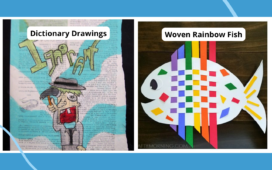
How Can You Identify Your Ideal SaaS Customer?
The data we receive regarding the SaaS market is staggering, as it is growing 600% faster than the rest of the global economy. This means that many buyers are waiting to reach deep into their pockets while many B2B companies fight to win over their audiences. Your only solution to getting a piece of the pie is to craft a dominant SaaS marketing strategy that entices the right people and pushes them down the sales funnel quickly. How can you achieve that? The first step is to craft buyer personas that highlight the key demographics of the people you’re targeting. For instance, many companies curate various SaaS marketing campaigns depending on age, gender, interests, goals, company size, and location. This process is crucial not only for SaaS startups but for businesses of all sizes.
The next step revolves around the customer journey, which you should keep simple. This journey typically includes the stages of awareness, consideration, decision, retention, and advocacy. You must curate different content depending on each stage. Marketing wizards like the team at eLearning Industry can help you identify your ideal customers and create top-quality content. For instance, educational eBooks and thought leadership webinars are wonderful lead magnet ideas for the awareness stage. They are not the only solutions, though. Keep scrolling to discover more about the intricate world of SaaS B2B marketing.
A Full Guide On How To Create An Engaging SaaS B2B Marketing Strategy That Helps You Stand Out
Learn how to reach your target buyers through compelling advertising solutions
How Can You Create A Great SaaS Marketing Plan?
Starting with a marketing plan template, you can include different strategies and tactics that you’ll keep measuring as you go. But how do you even start conducting your plan? First, you need to determine your buyer personas, which are the hypothetical versions of your actual customers that help you understand their preferences better. Also, you need to analyze your competitors and see what they are doing to successfully attract leads and convert them. You can leverage that knowledge to get ahead of them. Let’s not forget about your objectives. Every tactic you follow and measure you take should cater to reaching your main goals. Do you want to increase sales or brand awareness? Whatever it is, make sure you track your progress through analytics and tracking tools. Your goals should be realistic, though. Depending on your main goal, you can choose the most relevant channels to proceed with your SaaS marketing strategy. For instance, if your audience is mostly comprised of Gen Zers, social media is your ideal choice.
Next on the list is budgeting. How much money does it cost you to market your SaaS product on each chosen channel? Meet up with your marketing and sales associates and set a budget. Keep measuring your promotional campaigns and adjusting them as you see fit. Maybe you’ll need to scrap your initial plans if they’re not fruitful. One way to test your options is through A/B testing, as it helps you recognize which campaign attracts more leads.
10 Successful SaaS Marketing Strategies
1. Content Marketing
There is no better starting point for your SaaS marketing strategy than content marketing. You should create high-quality and engaging content that caters to your target audience’s needs and challenges. The most popular content marketing ideas involve the creation of blog posts, webinars, podcasts, landing pages, and videos. Blog posts inform customers who are just starting out their journey, as well as those who are further down the sales funnel, and make comparisons between your company and others. Webinars allow you to showcase your product live, answer audience questions, and establish thought leadership. Podcasts act similarly by increasing your credibility. Lastly, videos are now more popular than ever, thanks to social media. So, create small clips of your product demo and other educational clips to inform your audience.
2. SEO Optimization
How do you increase your website’s visibility without paying for ads all the time? Utilize your SEO skills to help your domain rank highly in the SERPs. Good ranking may be slow to come, as SEO needs time to work, but your efforts won’t go in vain. On-page Search Engine Optimization includes keyword research to identify high-performing keywords and phrases so you can use them in your texts. Adding alt tags to your images and optimizing URLs, meta descriptions, and title tags are also crucial. Then, you have to work on your internal linking and add as many relevant links that redirect customers to your services or other website content. eLearning Industry can offer such services if doing it yourself is not feasible. With off-site SEO, you need to concentrate on backlinks. While you might get tempted to create as many as possible, focus on quality, not quantity.
3. PPC Ad Campaigns
Even if you’ve perfected your SEO efforts and are receiving great rankings, don’t rely solely on organic traffic. This is one of the best practices for SaaS marketing, as Google ads, paid search, and pay-per-click (PPC) ads can help you achieve your goal more quickly and attract more targeted leads. However, it’s not as easy as you think to create an ad. Once again, you must research and utilize powerful and relevant keywords and phrases that will increase your ad’s visibility. Content marketing agencies like the expert team at eLearning Industry can help you craft, run, and measure your PPC digital campaigns and make alterations when needed. You may want to take a look at our LMS software directory to compare vendors and choose your perfect fit.
4. Retargeting
Unfortunately, some people will visit your website and even add items to their shopping cart but won’t proceed to checkout. Does this mean that you should abandon them? Surely not. A high-performing marketing team knows that a SaaS marketing strategy should focus on behavioral retargeting. Thanks to webpage cookies, you can track each person’s online visits. To recapture their interest, you can promote display ads so they are reminded of your company. The same thing can happen on social media. Lastly, for those who signed up and abandoned their carts, you may send them reminder emails to complete their orders.
5. Account-Based Marketing
Organic and paid traffic is still the most popular, but in the overcrowded SaaS advertising world, ABM should have a seat at the table. In fact, only 22% of SaaS companies have an ABM strategy in place. Since you’re targeting businesses and not individuals, you should tailor your messaging and content to each one based on their unique needs. Therefore, they are more likely to convert when they can see that you care about them and their success. Also, marketing leaders can keep track of their campaigns and make adjustments and improvements. As a result, you can increase your close rate and shorten your sales cycle. After you’ve created your strategy, you can leverage the benefits of AI in marketing by automating certain features, including email sequences and social media campaigns.
6. User Experience
SaaS product marketing depends heavily on User Experience (UX) and how satisfied your clients are with your solution’s usability and accessibility. You should never become complacent when it comes to UX. Keep improving and enhancing existing features and adding new ones depending on customer feedback. Navigation should feel like a walk in the park, and you must also add a search bar at the top of your website so visitors can easily locate everything they need. Additionally, you can add tooltips so people learn different functions as they navigate. Last but not least, make sure your customer service team is always available and eager to help. Chatbots are one of the top applications of Artificial Intelligence, so you can utilize them when your employees are off work.
7. Discounts And Free Trials
Did you know that 27% of SaaS companies get 25% of their business from free trials? This is reason enough for you to include this tactic in your SaaS marketing strategy, as clients will need to test your solution before paying for a full subscription. You lose nothing by offering your software for free for 2–4 weeks. On the contrary, you let people experience your product and see if it works for them. But you should make it easy for everyone to sign up without adding their credit card details. This practice is off-putting for many clients who may pull out at the last minute. After the trials end, contact your customers and ask them for feedback. If they are not 100% sure about upgrading to a paid subscription, offer them a unique discount to sweeten the pot.
8. Signups And CTAs
You would guess that all SaaS companies make it super easy for people to sign up and start using their services. However, that is not the case because not everyone holds excellent digital marketing skills. The best SaaS marketing campaigns use powerful CTAs to attract leads and convince them to click on the link. For instance, “free trial” and “download for free” are much stronger than “click here” and “shop now.” Then, you must make your signup process easy and uncomplicated. It should be very quick for someone to enter their email address and other personal details. Companies that create several steps to complete signups typically use many of their potential buyers along the way. You can also assure people that they can get their money back if they are not satisfied with your solution.
9. Referrals
An invaluable SaaS marketing tip is to incentivize your referrals based on your company’s needs. Do you need customers to experience more of your software or to purchase extra services? Depending on your answer, you may offer discounts, coupons, free trials, or free feature upgrades. Your rewards should be enticing so that existing customers are willing to promote your product relentlessly. However, your referral program won’t generate interest just by existing. You should pique your clients’ interest by posting about it on social media and promoting it in your emails. Make sure that you measure your referral activity. Maybe you need to add different incentives or increase your discounts.
10. Case Studies And Comparisons
Are you looking for great SaaS content writing examples that will showcase your expertise and propel you ahead of your competition? Both case studies and comparison blog posts cater to customers at the consideration stage of your sales funnel. It’s where they’re comparing different providers to find their ideal fit. Your SaaS marketing strategy should focus on producing detailed case studies, including customer testimonials and reviews. What issues were your customers facing before you stepped in to save the day? Moreover, don’t be afraid to compare yourself to other vendors. What makes you better than them, and what features have you developed that they are missing? Clients usually compare software themselves, so you can make it a lot easier by conducting these analogies.
Ways SaaS Companies Can Sell To SMB
It’s not only about knowing your buyer personas but also about understanding the size of the business you’re promoting to. Why should a SaaS marketing strategy approach small and medium-sized businesses differently than enterprises? First, SMBs are probably looking for more affordable solutions that have the potential to grow as their business evolves. Also, smaller companies set short-term goals and need solutions for specific, urgent matters. So, you must recognize the potential issues they often face and provide timely assistance. Building a trusting and honest relationship is crucial to collaborating with an SMB since investing in a new SaaS solution can be risky. Locate who the decision-makers are and converse with them to get to know their needs and worries.
In smaller companies, one person can have two roles. For instance, a CFO may also be the marketing leader. So, speak to the right people and understand whether they are your ideal customers. Often, SMBs don’t have the capital to purchase your SaaS product. So, let your marketing team do their research before even contacting every company in the book. You may need to tailor your B2B content marketing efforts depending on the size and budget of each company.
Ways SaaS Companies Can Sell To B2B
Sometimes companies are both SaaS and B2B, and sometimes these two are set apart. Often, companies that sell software as a service cater their marketing solely to B2B. Marketing a SaaS product can be quite complex, and that’s why you need to offer trials to potential customers. Extend the trial period based on your product. For instance, payroll software may be harder to figure out, so a one-week trial isn’t enough. After every purchase, you must provide a detailed demo and onboarding material. Since most customers prefer self-service, in-person software demonstrations are out of style, and businesses require comprehensive digital material. But even if your initial SaaS B2B marketing is successful, you should pursue feedback. Ask paying customers what their opinions and experiences are. Most of them will not contact you if they have issues. They’ll just not renew their subscription and change providers. So, show genuine effort to improve your services, and depending on each case, gift them with renewal discounts. It’s best to combine renewals with upgrades so customers feel like they are getting something extra.
6 Cost-Effective SaaS Marketing Strategies For Startups
1. Remarketing
Similar to retargeting, remarketing is a great cost-effective SaaS strategy for startups because it allows you to keep the conversation going with customers who visited your website but exited before making a purchase. Instead of spending even more on ads to attract new customers, you can reduce your spending by touching base with already interested clients. One of the most valuable B2B marketing strategy examples is setting up tracking pixels, also known as cookies. These provide you with data regarding their online behavior. You can use them on your website, CTA clicks, signup forms, and eBook downloads. However, you need to inform your visitors that you use cookies and ask for their consent.
2. Conversion Rate Optimization
Successful content marketing for B2B relies heavily on improved CRO. You need as many of your visitors as possible to turn into paying customers. This can happen only if you understand what paths they take, from the first to the last touchpoint. Check the drop-off points to identify what caused them to exit your domain. Marketing a SaaS product requires a fast landing page where everything loads quickly and people don’t have to wait endlessly. One mistake many startups make is not conducting A/B testing for their CTA texts, fonts, colors, and page layouts. Maybe you need to make the size of the letters bigger and add brighter colors. If your clients can’t notice your CTA, how will they click on it?
3. Create Content For All Funnel Stages
Imagine this: customers typically view 11 pieces of content before making a purchase. Your SaaS marketing strategy should craft and spread relevant and targeted content depending on the stage each customer is at. Besides, content is the present and future of digital marketing. For instance, at the top of the funnel, where people learn about your brand, educational blog posts that prove thought leadership are necessary. However, toward the bottom of the funnel, at the stage of consideration, potential clients want to see comparisons and case studies. Following this tactic offers B2B audiences guidance and information as they proceed. Therefore, they are more likely to convert and turn into advocates.
4. Social Media Marketing
If you are implementing PPC ad campaigns, you can’t leave social media marketing out of the equation. Not only do you increase visibility, but you can also measure content marketing performance accurately. You can set your demographics, including age, gender, company size, and location, and tailor your message according to each buyer’s persona. But not every platform is the same. LinkedIn requires a more formal, business-heavy tone, while Instagram can be friendly and playful. You may utilize Instagram and Facebook to show internal aspects of your company, like behind-the-scenes videos, employee insights, and fun office activities. As a result, you maximize your marketing results and develop a holistic approach to promoting your SaaS solution.
5. Clear Pricing
You’d be amazed at how many customers you can lose if you don’t state your pricing clearly and transparently. Not everyone is willing to message you. They’ll simply move on to the next vendor as ambiguity leads to hesitation. You should create different pricing tiers catering to different needs and requirements. For example, you may have a basic plan with some key features, an enhanced plan for SMBs, and a premium plan for enterprises. You should consider data-usage pricing if you have SaaS software that involves data storage. Additionally, you may charge per user. This practice is scalable, as you can charge more depending on the company’s number of employees. Lastly, be flexible with billing. Provide both monthly and annual payments since many corporations don’t feel comfortable paying a full annual subscription.
6. Network
Expanding your network online and offline should be at the forefront of SaaS startups’ marketing strategies. Why? You simply don’t have the budget to advertise your products everywhere all the time. By introducing yourself to your clients on social media platforms and at in-person events, you get a foothold in your niche industry. Maybe you can find other startups that want to collaborate and venture into small business content marketing together. You can publish each other’s content on your blogs and create educational webinars and podcasts. Industry-related events help you analyze your competition and learn from their tactics. You also meet industry leaders and potential clients who you add to your email list.
Key Takeaway
If you are searching for high-quality SaaS marketing tips, you are definitely at the right place, as we can help you conduct detailed and accurate customer profiling so you can craft your buyer personas. We can also assist you in utilizing gated content to attract leads and make them hand you their email addresses so you can strengthen your list. But what happens when you’ve gathered all these addresses and have no idea how to speak to clients? Maybe you’re interested in professional email marketing services that help you connect with hundreds of thousands of potential leads and industry experts that can give you the push you need.















